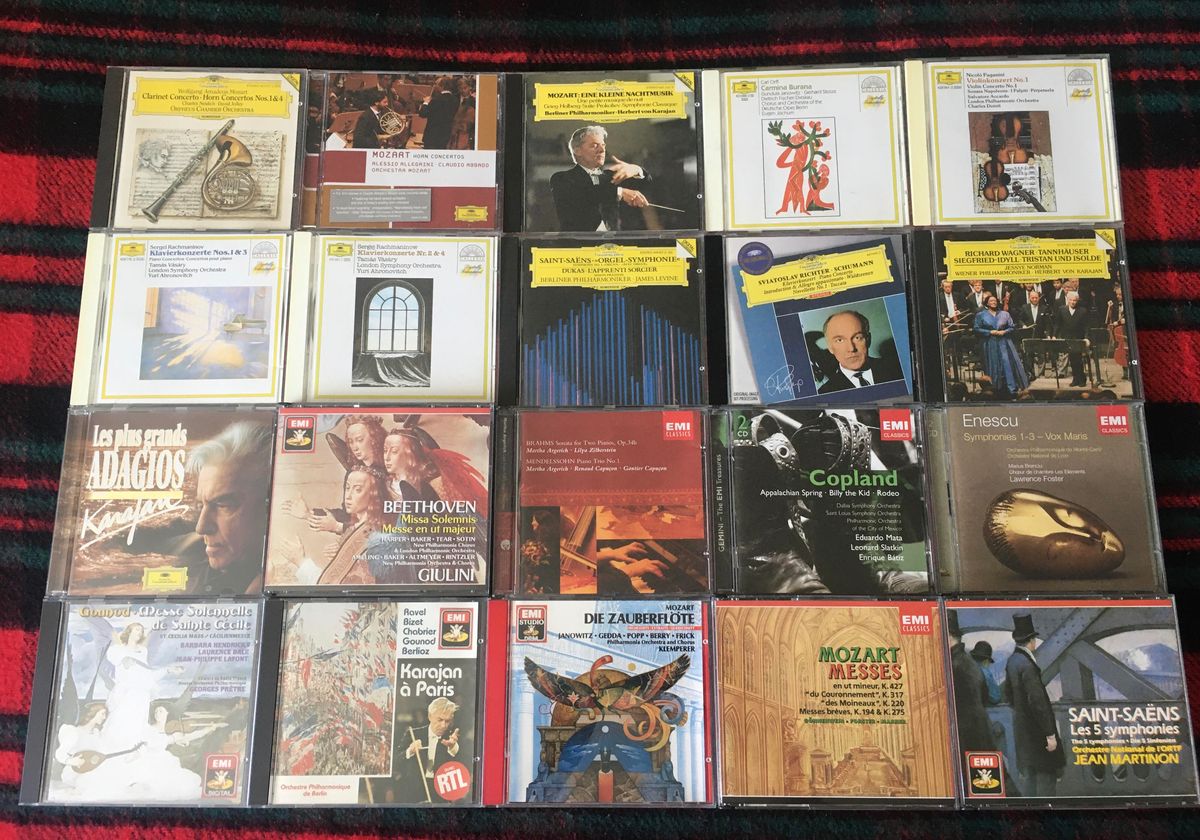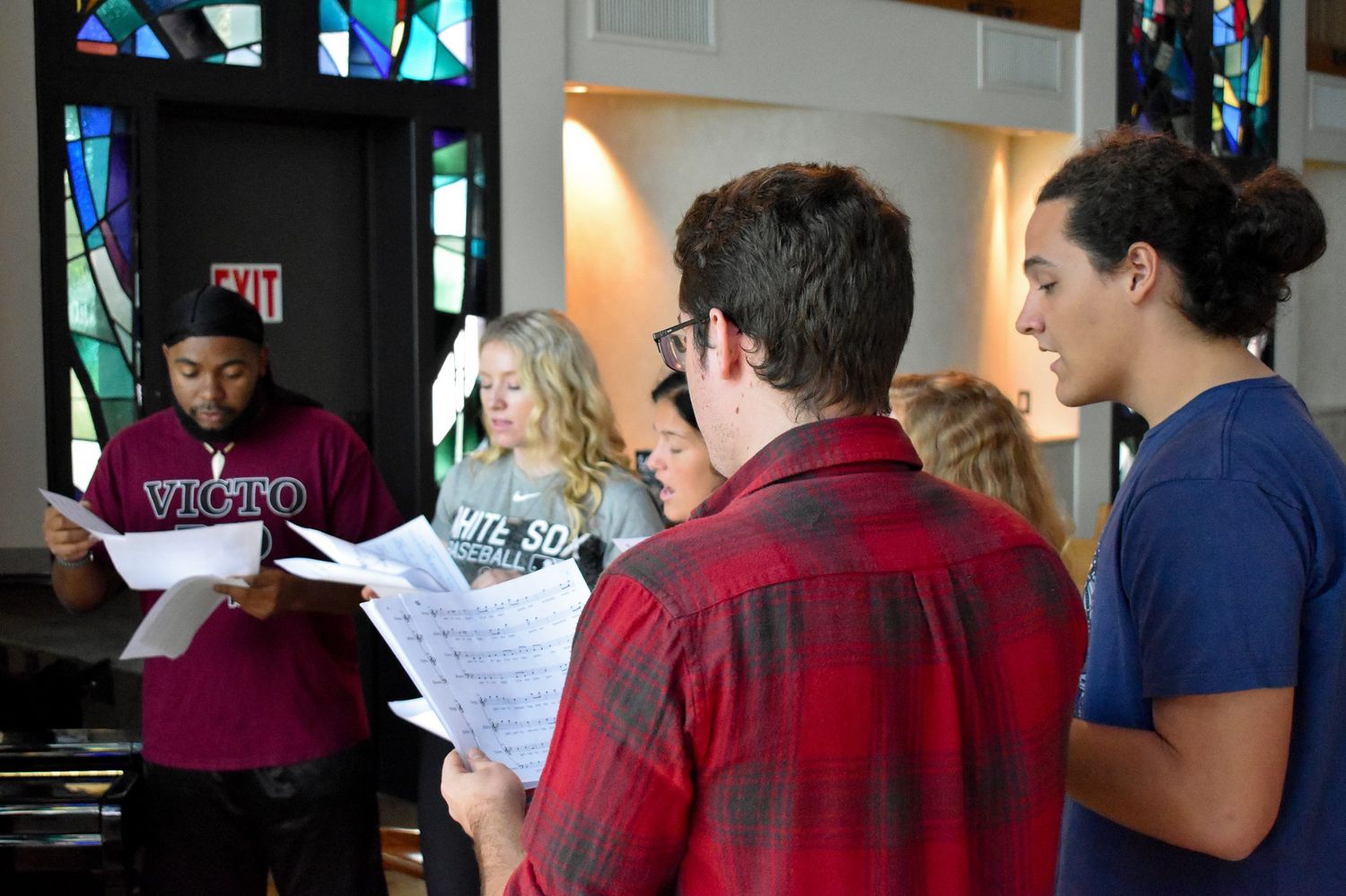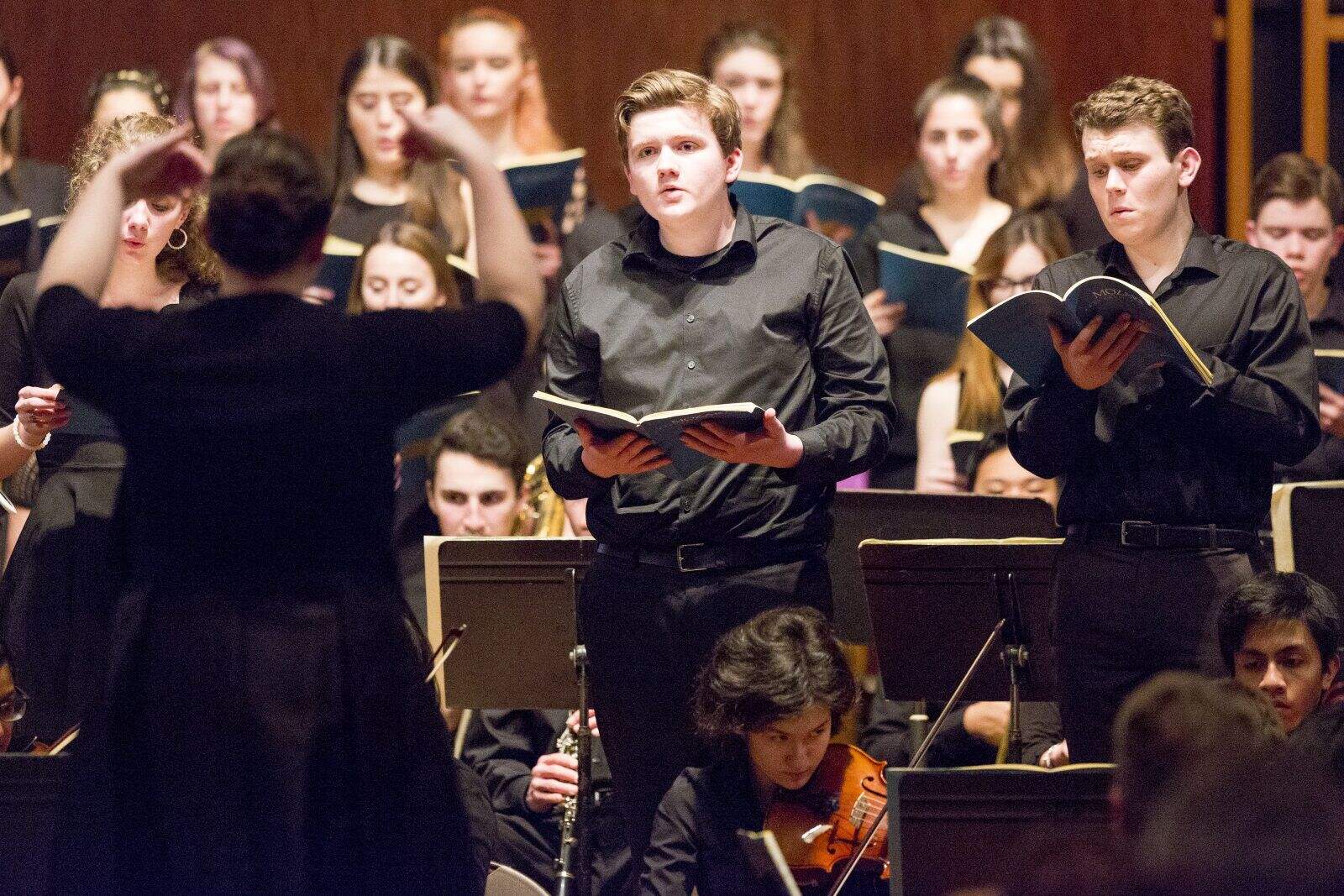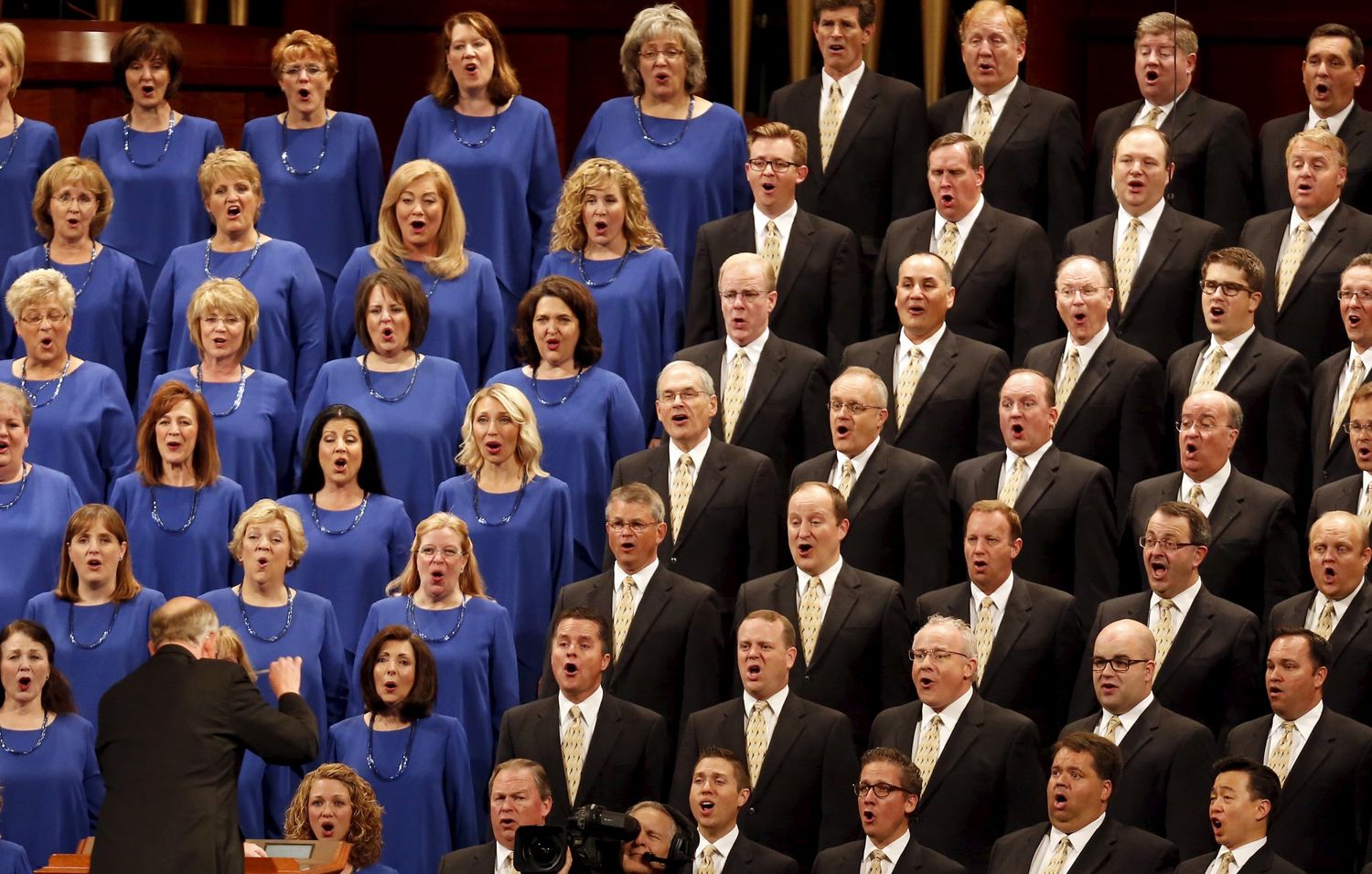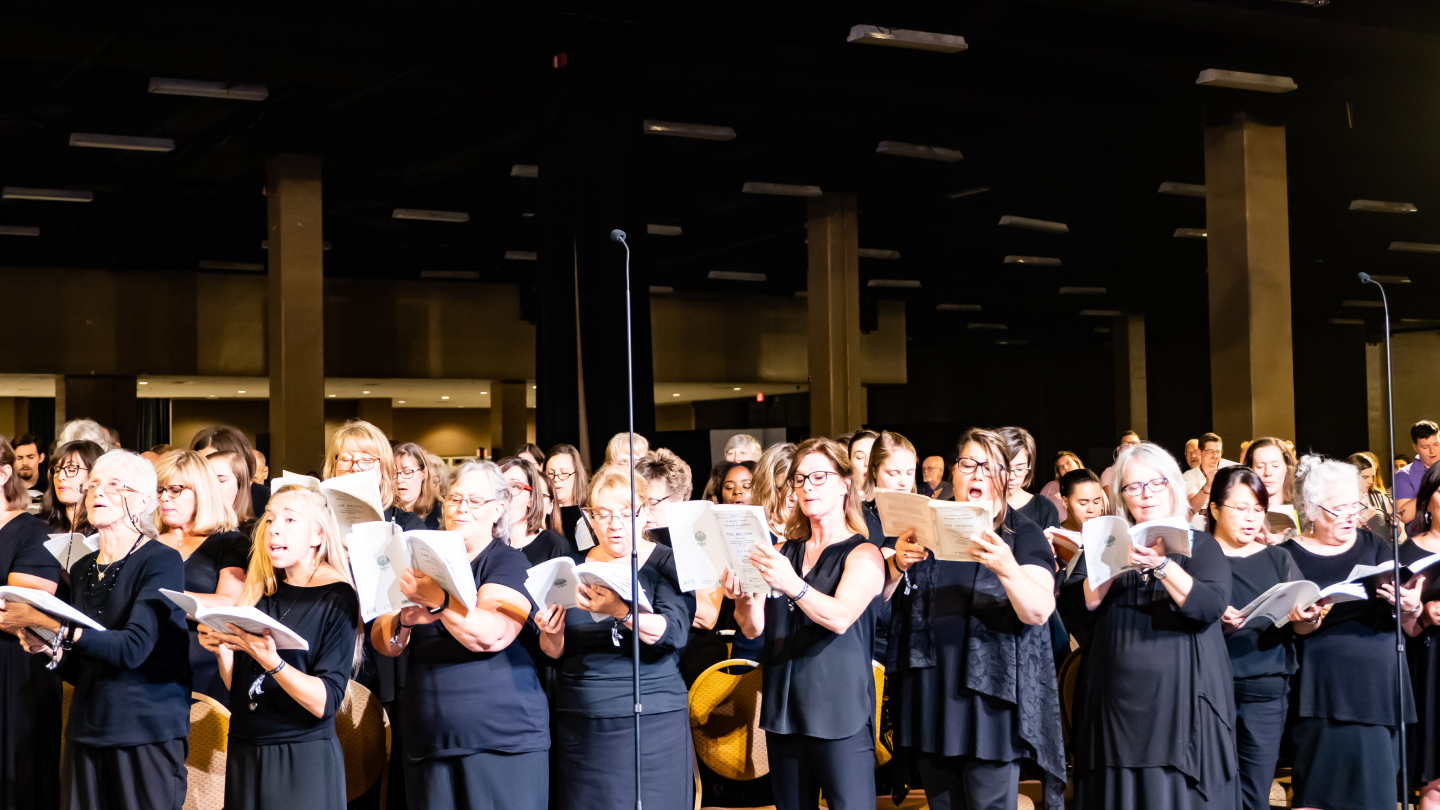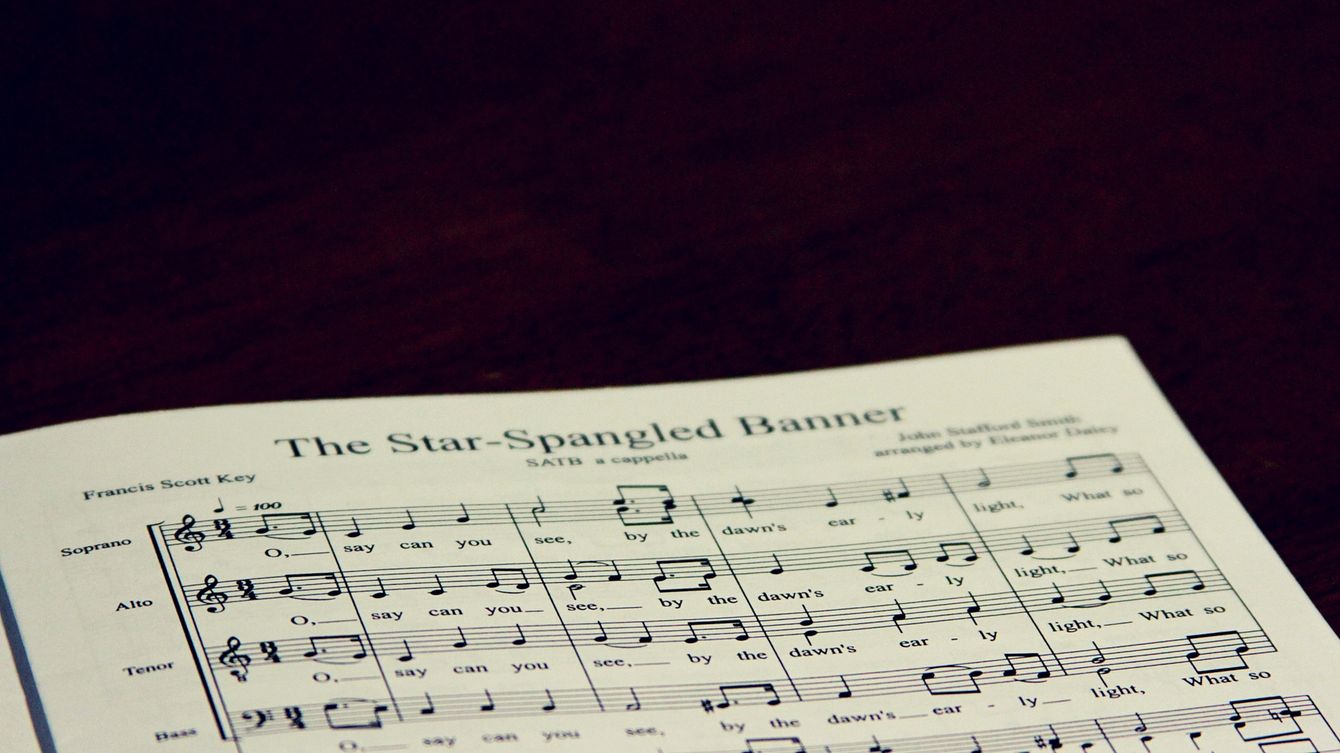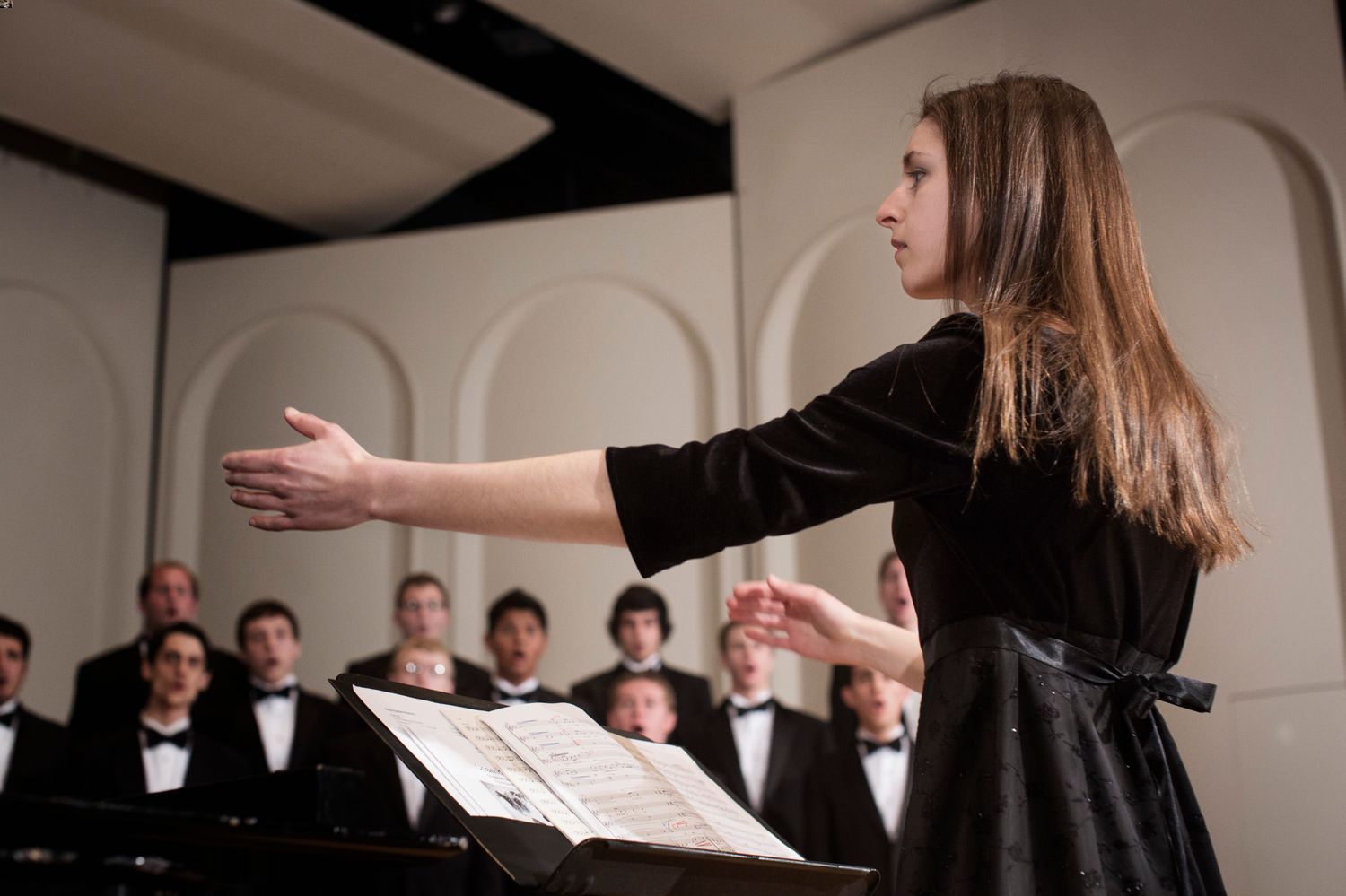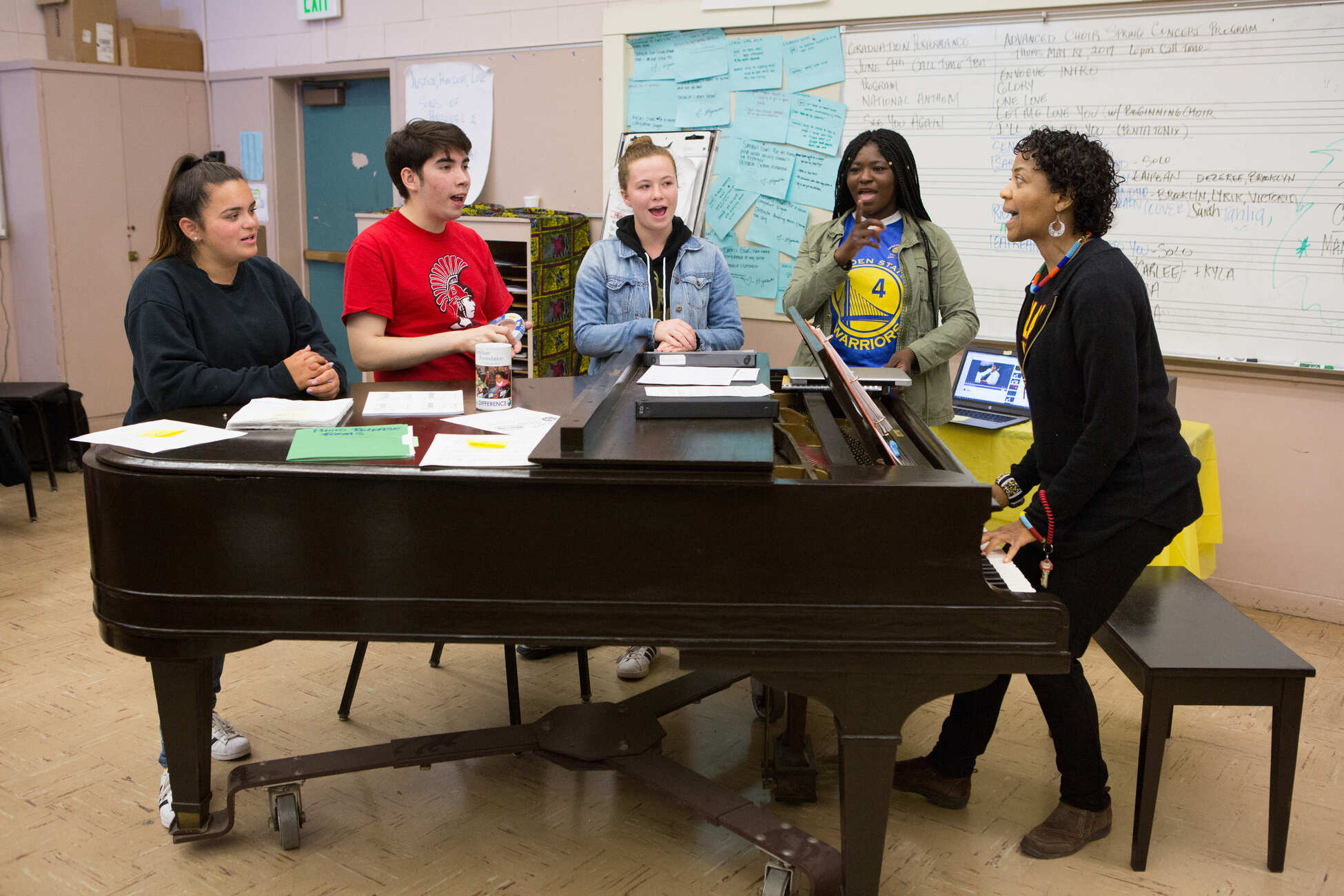Home>Production & Technology>Choir>How Can A Church Legally Reproduce CDs For Its Choir
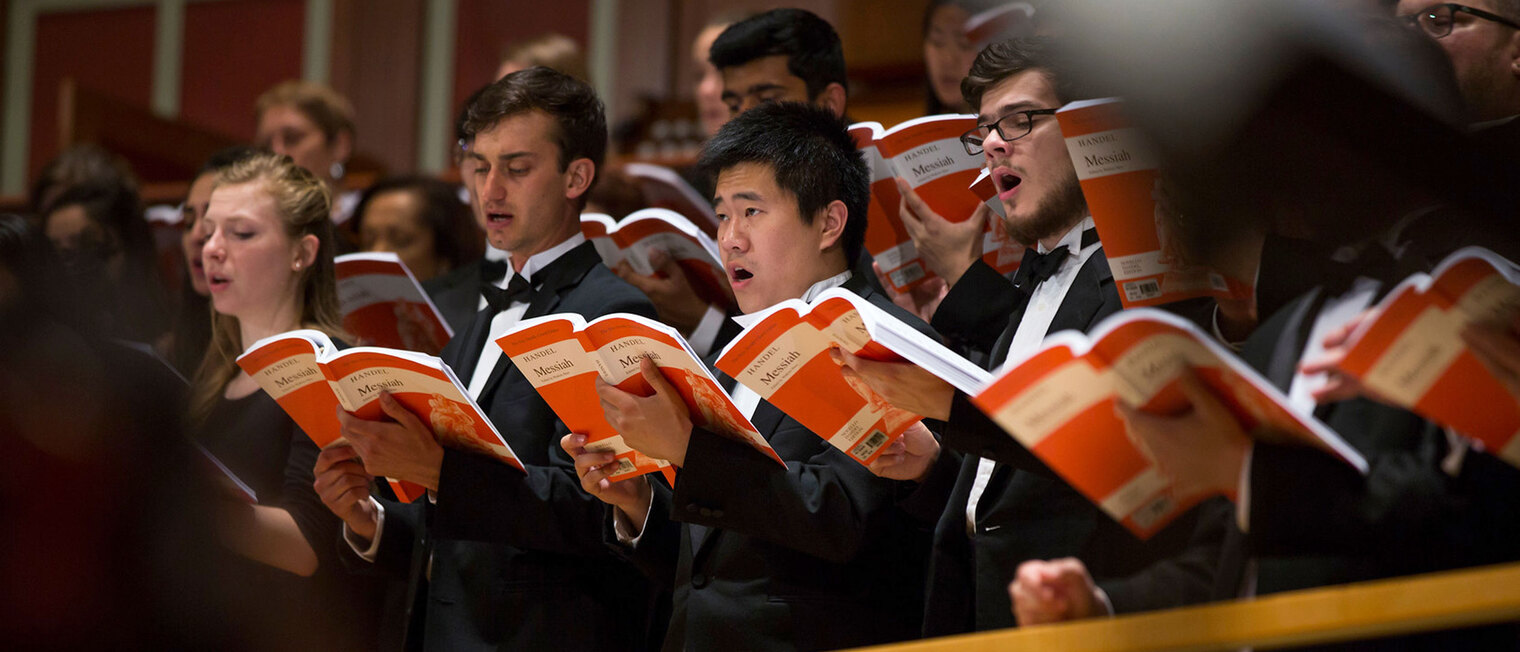

Choir
How Can A Church Legally Reproduce CDs For Its Choir
Published: February 22, 2024
Learn how a church choir can legally reproduce CDs and navigate copyright laws with expert guidance. Ensure your choir's music is compliant and protected.
(Many of the links in this article redirect to a specific reviewed product. Your purchase of these products through affiliate links helps to generate commission for AudioLover.com, at no extra cost. Learn more)
Table of Contents
Introduction
Choirs play a significant role in enhancing the spiritual experience of congregations and communities. The harmonious blend of voices and the uplifting melodies can uplift the spirits of listeners and create a sense of unity and peace. At the heart of many successful choirs is the production of CDs, which serve as a timeless keepsake and a powerful tool for sharing the choir's music with a wider audience.
However, the process of reproducing CDs for a choir involves navigating the complex landscape of copyright laws and licensing requirements. It's essential for churches and choirs to understand the legal implications of reproducing CDs to ensure compliance with copyright regulations while supporting the choir's mission of spreading joy and inspiration through music.
In this article, we will delve into the intricacies of copyright laws as they pertain to the reproduction of CDs for choirs. We will explore the steps involved in obtaining the necessary licensing and permissions, and we will provide insights into how churches can lawfully reproduce CDs for their choirs while respecting the rights of composers and performers.
By gaining a comprehensive understanding of the legal framework surrounding CD reproduction, churches and choirs can continue to share their musical gifts with the world while upholding ethical and legal standards. Let's embark on this journey to unravel the nuances of copyright laws and discover the pathways to legally reproducing CDs for choirs.
Understanding Copyright Laws
Copyright laws serve as the bedrock of intellectual property protection, safeguarding the creative works of individuals and entities from unauthorized use and reproduction. When it comes to the production and distribution of CDs for choirs, it is crucial to grasp the fundamental principles of copyright laws to ensure compliance and uphold the rights of composers, lyricists, and performers.
In the context of choir CDs, copyright laws extend to various elements, including musical compositions, lyrics, and recorded performances. Each of these components is protected by copyright, and any reproduction or distribution of CDs containing such content must be done in accordance with the law.
It's important to recognize that copyright protection arises automatically upon the creation of a musical work or a set of lyrics. This means that composers and lyricists enjoy exclusive rights to their creations from the moment they are fixed in a tangible form, such as sheet music or a digital recording. Similarly, performers hold rights to their recorded performances, further adding to the complexity of copyright considerations in choir CD production.
Furthermore, the duration of copyright protection varies depending on the jurisdiction and the nature of the work. In general, copyright protection lasts for the lifetime of the creator plus a certain number of years, after which the work enters the public domain. Understanding the duration of copyright protection is essential for determining the legality of reproducing and distributing CDs featuring older musical compositions and performances.
In the digital age, copyright laws have evolved to address the challenges posed by online distribution and digital piracy. The proliferation of online streaming and downloading platforms has necessitated the implementation of robust copyright enforcement mechanisms to protect the rights of creators and rights holders. As a result, churches and choirs must remain vigilant in adhering to copyright laws when reproducing and distributing CDs, especially when leveraging digital distribution channels.
By comprehending the intricacies of copyright laws as they relate to choir CDs, churches and choirs can navigate the legal landscape with confidence and integrity. This knowledge forms the foundation for obtaining the necessary licensing and permissions to reproduce CDs in compliance with copyright regulations, ensuring that the choir's musical endeavors are conducted ethically and lawfully.
Understanding copyright laws is a vital first step in the journey toward legally reproducing CDs for choirs. It sets the stage for exploring the process of obtaining proper licensing, a crucial aspect that we will delve into next.
Obtaining Proper Licensing
Obtaining proper licensing is a pivotal step in the process of legally reproducing CDs for choirs. It involves securing the necessary permissions and authorizations to use copyrighted material in the production of CDs, thereby ensuring compliance with copyright laws and respecting the rights of creators and performers.
The licensing process begins with identifying the copyrighted content that will be featured on the choir's CDs. This includes musical compositions, lyrics, and recorded performances, each of which may be owned by different rights holders. Once the copyrighted material is identified, the next step is to determine the appropriate entities or organizations from which to obtain the required licenses.
In the realm of music licensing, there are several entities involved in administering rights and granting licenses. These entities include performance rights organizations (PROs) such as ASCAP, BMI, and SESAC, which represent the interests of composers and music publishers. Additionally, record labels and individual artists or performers may hold rights to the recorded performances featured on the CDs. Navigating this complex web of rights holders requires careful research and communication to ensure that all necessary licenses are obtained.
For churches and choirs, the licensing process may involve engaging with multiple entities to secure the relevant permissions. This could entail obtaining synchronization licenses for the use of musical compositions and mechanical licenses for the reproduction and distribution of recorded music. In some cases, churches may also need to secure master use licenses from record labels or individual artists to feature specific recordings on the choir's CDs.
To streamline the licensing process, churches and choirs can leverage the services of music licensing agencies and clearance companies that specialize in obtaining permissions for the use of copyrighted music. These entities can assist in navigating the complexities of music licensing, negotiating favorable terms, and ensuring that all necessary rights are cleared for the reproduction of CDs.
Furthermore, it's important to note that the licensing requirements may vary depending on the intended use of the CDs. For instance, if the choir plans to sell the CDs or distribute them commercially, different licensing considerations come into play compared to producing CDs for internal use or limited distribution within the church community.
By diligently pursuing the proper licensing for choir CDs, churches demonstrate a commitment to upholding the rights of creators and performers while fostering a culture of ethical and legal compliance. This proactive approach not only ensures legal protection for the choir's musical endeavors but also fosters positive relationships with rights holders and the broader music industry.
In the subsequent section, we will delve into the process of reproducing CDs in compliance with the obtained licenses, shedding light on the practical considerations and best practices for lawful CD production.
This section provides a comprehensive overview of the licensing process, equipping churches and choirs with the knowledge and insights needed to navigate the intricacies of music licensing for choir CDs.
Reproducing CDs in Compliance with Copyright Laws
Reproducing CDs for choirs involves a meticulous adherence to copyright laws to ensure that the production process aligns with legal and ethical standards. Once the necessary licensing and permissions have been obtained, the focus shifts to the practical aspects of CD reproduction, encompassing the creation, manufacturing, and distribution of the choir's musical recordings.
The first step in reproducing CDs in compliance with copyright laws is to engage in the actual production process. This includes recording the choir's performances, whether in a studio setting or during live events, to capture the essence and artistry of the musical repertoire. Care must be taken to ensure that the recorded material aligns with the licensed content and that all performances are in accordance with the granted permissions.
Following the recording phase, the next critical aspect is the manufacturing of the CDs. This involves creating physical copies of the recorded material, which may include the duplication of CDs in large quantities for distribution. It is imperative to engage reputable CD duplication services that adhere to copyright regulations and licensing requirements, thereby ensuring that the reproduced CDs are lawful and compliant.
In parallel with the manufacturing process, the design and packaging of the CDs also come into play. Artwork, liner notes, and any accompanying printed materials must be created with attention to detail, bearing in mind the inclusion of copyright notices, licensing information, and proper credits for the composers, lyricists, and performers. This not only fulfills legal obligations but also acknowledges the creative contributions of all involved parties.
Once the CDs are manufactured and packaged, the final phase involves distribution and dissemination. Whether the CDs are intended for sale, promotional purposes, or internal circulation within the church community, it is essential to uphold the terms and conditions stipulated in the obtained licenses. This may include restrictions on the geographic scope of distribution, the duration of availability, and the reporting of sales or usage metrics as per the licensing agreements.
Moreover, in the digital age, the reproduction of CDs may extend to digital formats such as streaming platforms and online distribution channels. Churches and choirs must ensure that digital reproduction and distribution align with the granted licenses, respecting the rights of composers, lyricists, and performers in the digital realm.
By meticulously navigating the practical aspects of CD reproduction in compliance with copyright laws, churches and choirs uphold the integrity of their musical endeavors while honoring the rights of creators and performers. This commitment to lawful and ethical CD production not only fosters a culture of respect within the music community but also ensures that the choir's music can be shared with audiences in a manner that is both inspiring and legally sound.
Conclusion
In conclusion, the process of legally reproducing CDs for choirs involves a multifaceted journey that intertwines artistic expression with legal compliance. By delving into the nuances of copyright laws and obtaining the necessary licensing, churches and choirs can embark on the production of CDs with confidence, knowing that they are upholding the rights of creators and performers while sharing their musical gifts with the world.
Understanding the intricacies of copyright laws is foundational to the entire process. It provides the knowledge needed to navigate the complexities of intellectual property rights, duration of copyright protection, and the evolving landscape of digital distribution. Armed with this understanding, churches and choirs can approach the reproduction of CDs with a keen awareness of their legal obligations and the ethical imperative to honor the creative works that form the foundation of their musical repertoire.
Obtaining proper licensing is a critical step that underscores the commitment to ethical and legal compliance. By engaging with rights holders, music licensing agencies, and clearance companies, churches and choirs demonstrate a proactive approach to securing the necessary permissions for the use of copyrighted material. This not only ensures legal protection but also fosters positive relationships within the music industry, paving the way for future collaborations and endeavors.
Reproducing CDs in compliance with copyright laws encompasses the practical aspects of CD production, from recording and manufacturing to distribution and digital dissemination. Each phase of the process requires meticulous attention to detail, from aligning recorded material with licensing permissions to ensuring that artwork and packaging reflect proper credits and copyright notices. By adhering to these standards, churches and choirs uphold the integrity of their musical recordings while honoring the contributions of composers, lyricists, and performers.
In essence, the journey of legally reproducing CDs for choirs embodies a harmonious blend of artistic passion and legal responsibility. It is a testament to the profound impact of music in uplifting spirits and fostering a sense of community. By embracing the principles of ethical and legal compliance, churches and choirs can continue to share their musical legacy with audiences far and wide, knowing that their endeavors are rooted in respect, integrity, and a deep appreciation for the transformative power of music.

